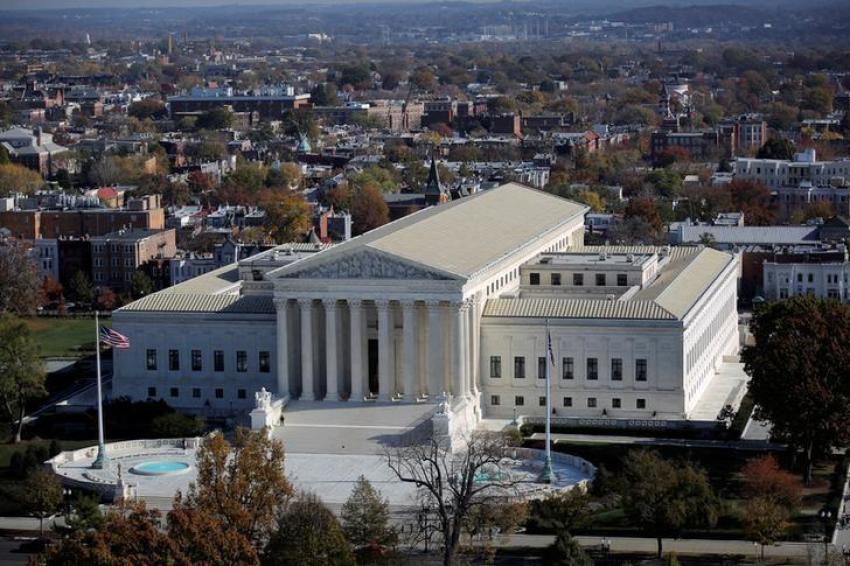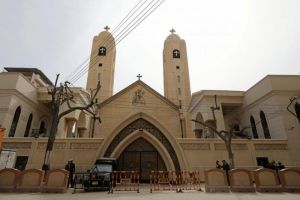Supreme Court says Catholic schools can dismiss teachers for religious reasons

The Supreme Court has ruled that two Catholic schools were within their rights to dismiss two teachers on the basis of classifying them as “ministers” rather than secular professionals.
In a decision released Wednesday morning, the high court ruled 7-2 that two California-based Catholic schools can classify their teachers as ministers and not be held by the standards of state antidiscrimination laws.
Justice Samuel Alito delivered the opinion of the court, being joined by Chief Justice John Roberts, and Justices Clarence Thomas, Stephen Breyer, Elena Kagan, Neil Gorsuch, and Brett Kavanaugh.
Alito cited the 2012 Supreme Court decision Hosanna-Tabor v. EEOC, in which the court ruled unanimously that antidiscrimination laws do not apply to religious employment decisions.
“The religious education and formation of students is the very reason for the existence of most private religious schools, and therefore the selection and supervision of the teachers upon whom the schools rely to do this work lie at the core of their mission,” wrote Alito.
“Judicial review of the way in which religious schools discharge those responsibilities would undermine the independence of religious institutions in a way that the First Amendment does not tolerate.”
Justice Sonia Sotomayor authored a dissenting opinion, being joined by Justice Ruth Bader Ginsburg, in which she argued that the decision “strips thousands of schoolteachers of their legal protections.”
“… the Court’s apparent deference here threatens to make nearly anyone whom the schools might hire ‘ministers’ unprotected from discrimination in the hiring process,” wrote Sotomayor.
Agnes Deirdre Morrissey-Berru sued Our Lady of Guadalupe School of Hermosa Beach under the Age Discrimination in Employment Act, claiming age discrimination.
Our Lady of Guadalupe argued that Morrissey-Berru was let go due to poor performance and because of a new rating system implemented that featured the teachers becoming catechists.
Although a district court ruled in favor of Our Lady of Guadalupe, a three judge panel of U.S. Court of Appeals for the Ninth Circuit overturned the ruling in April of last year.
The panel concluded that as a teacher, Morrissey-Berru held a position that was too secular to warrant a ministerial exemption and thus her claim of age discrimination remained valid.
“Aside from taking a single course on the history of the Catholic church, Morrissey-Berru did not have any religious credential, training, or ministerial background. Morrissey-Berru also did not hold herself out to the public as a religious leader or minister,” concluded the Ninth Circuit panel.
“Morrissey-Berru did have significant religious responsibilities as a teacher at the School … However, an employee’s duties alone are not dispositive under Hosanna-Tabor’s framework.”
In the other case, Kristen Biel sued St. James School of Torrance over not renewing her contract, allegedly because she had cancer, which violated the Americans With Disabilities Act.
St. James School responded Biel was released because of poor performance and that the decision was made before Biel disclosed her cancer diagnosis to the school.
In December 2018, a three-judge panel of the Ninth Circuit ruled 2-1 that Biel was not a minister according to the standards set out by Hosanna-Tabor and thus could sue the school.
“There was no religious component to her liberal studies degree or teaching credential. St. James had no religious requirements for her position,” concluded the panel majority.
“Nor did St. James hold Biel out as a minister by suggesting to its community that she had special expertise in Church doctrine, values, or pedagogy beyond that of any practicing Catholic.”
The two cases were consolidated and argued before the U.S. Supreme Court in May, with the religious liberty law firm Becket representing the Christian schools.
“Our view was the court really seemed quite broadly in agreement that the schools should win their case and that the 9th Circuit was wrong,” Becket Senior Counsel Daniel Blomberg, a member of the legal team representing the schools, told The Christian Post at the time.
“I think the thing that the justices were probing was less about this particular case but more about how to draw the line doctrinally in future cases. I think that’s one of the things that came through really clear was that the line being drawn by opposing counsel wasn’t the right one.”



























